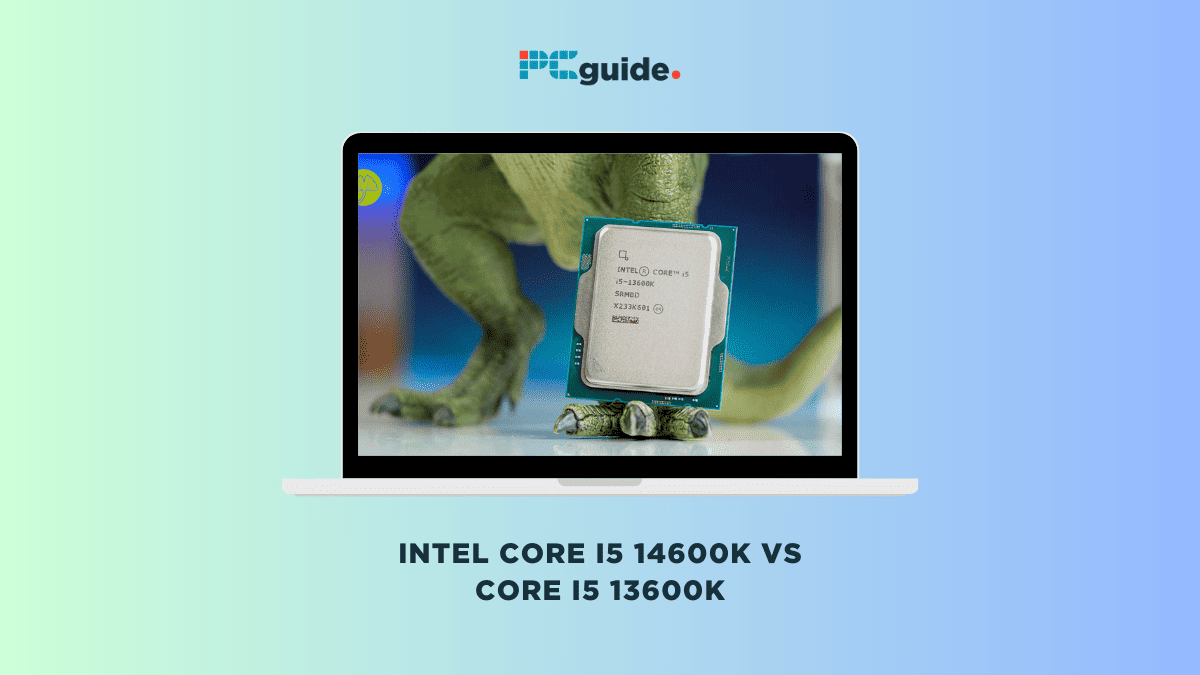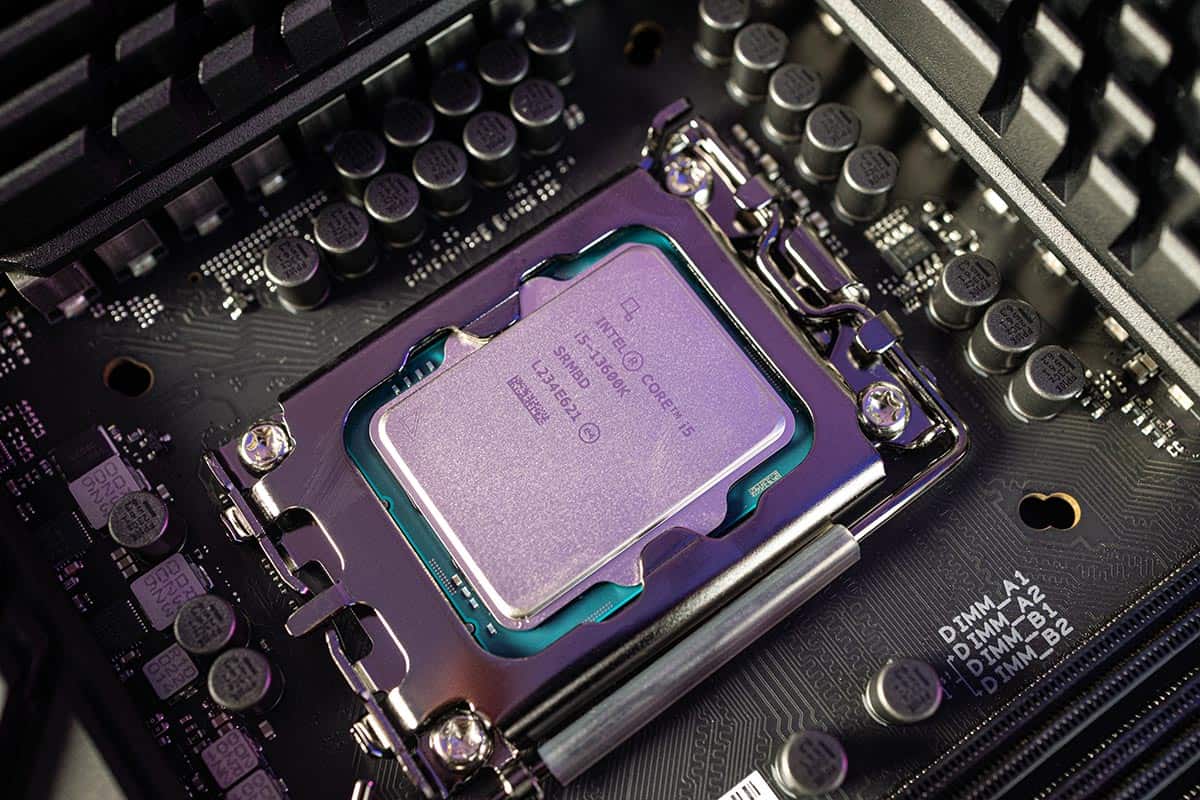Intel Core i5 14600K vs Core i5 13600K – Raptor Lake but better

Table of Contents
The Intel Core i5 14600K vs. Core i5 13600K debate is heating up as Intel’s 14th-generation chips, also known as Raptor Lake Refresh, hit the market. While these new processors share architectural similarities with their predecessors, they bring potential improvements that could make them the new mainstream chips, much like the Core i5 13600K before them.
So, for PC builders, gamers, and tech enthusiasts pondering upgrades, the question looms: Which CPU offers the better scenario for your desktop? Let’s dive into this comprehensive comparison to find out.
Intel Core i5 14600K vs. Core i5 13600K: Specs comparison
At first glance, the Intel Core i5 14600K and Core i5 13600K may seem like twins in the CPU world. Both new chips are part of Intel’s 14th gen lineup, built on the Raptor Lake architecture, and offer similar core counts—each boasting 6 performance cores and 8 efficiency cores. But when you dig deeper into the benchmarks and frequencies, subtle yet significant differences begin to emerge.
Memory and RAM
Both CPUs support DDR4 and DDR5 memory, providing flexibility when choosing RAM. They also offer ECC (Error-Correcting Code) memory support, making them viable options for workstations and servers where data integrity is crucial.
Graphics and power consumption
If integrated graphics are your concern, the Core i5 14600K comes with Intel UHD Graphics and has a GPU clock speed of 1.55 GHz. In contrast, the Core i5 13600K operates at 1.50 GHz. While the difference may not be groundbreaking, it could slightly affect gaming benchmarks for those relying on integrated graphics.
| Specs | Core i5 14600K | Core i5 13600K |
|---|---|---|
| Performance Cores | 6x Raptor Cove | 6x Raptor Cove |
| Efficiency Cores | 8x Gracemont | 8x Gracemont |
| Threads | 20 | 20 |
| ECC Support | Yes | Yes |
| DDR4 and DDR5 Support | Yes | Yes |
| P-Core Base Clock | 3.50GHz | 3.50GHz |
| P-Core Boost Clock | 5.30GHz | 5.10GHz |
| E-Core Base Clock | 2.60GHz | 2.60GHz |
| E-Core Boost Clock | 4.00GHz | 3.90GHz |
| Max. Bandwidth | 96.0 GB/s | 89.6 GB/s |
| Cache | 44 MB | 44 MB |
| TDP | 125W | 125W |
| GPU (Turbo) | 1.55 GHz | 3.90GHz |
| Socket | LGA 1700 | LGA 1700 |
As demonstrated by the table above, there are many similarities between the two processors.
Boost clocks and base clock speed
The most noticeable difference lies in their boost clocks. The Core i5 14600K’s P-core boost clock edges out at 5.30GHz, compared to the 13600K’s 5.10GHz. Similarly, the E-core boost clock in the 14600K is 4.00GHz, a slight bump from the 13600K’s 3.90GHz. These higher clock speeds could translate to better single-core performance, which is crucial for tasks that don’t utilize multiple cores.
Cooler and power efficiency
Both CPUs are similar in their TDP ratings, but it’s worth noting that the Core i5 14600K has been reported to stay cooler under stress. This could be a deciding factor for those concerned about power consumption and thermal performance.
By examining these specs in various scenarios, from gaming to workstation use, you can make a more informed decision on which CPU best suits your desktop needs.
Intel Core i5 14600K vs. Core i5 13600K: Performance
There's a minimal margin of difference in terms of performance capabilities between the two. While they are both below par, considering that they are the low-end processors of their respective generations, Core i5 14600K is slightly better than its predecessor.
The slight performance improvement is primarily because of a small increase in the boost clock speed. Core i5 13600K features a performance core boost clock speed of 5.10GHz and an efficiency core speed of 3.90GHz.
Compared to that, the Core i5 14600K's performance and efficiency core boost speed are marginally better. It boasts a performance core boost clock speed of 5.30GHz and an efficiency core boost clock speed of 4.00GHz.
This edge, while existing, is minimal, which means that for everyday tasks and gaming, the differences might not be very noticeable. Nevertheless, for those who crave every bit of power they can get, the Core i5-14600K provides a slight advantage.
Intel Core i5 14600K vs. Core i5 13600K: Price
The story remains the same in terms of pricing, too. There's a minimal difference of only $20. The Intel Core i5 14600K is priced at $329 and the Intel Core i5 13600K is currently priced at $309.
However, now that the 14th-gen SKUs are out and will continue to arrive, the prices of 13th-gen processors will likely drop in the coming time. But as of the time of writing this article, the price is almost similar and reflects the slight performance edge that the Intel Core i5 14600K has over the Core i5 13600K.
Conclusion
Intel Core i5 14600K takes the foundation laid by the Core i5-13600K and elevates it with minimal improvements. However, this improvement is not very noticeable unless you look at the numbers. Put simply, it is the same version of Raptor Lake but better.

